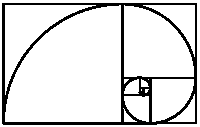Math in the Middle Institute Partnership

Department of Teaching, Learning, and Teacher Education: Master of Arts in Teaching, Summative Projects
Date of this Version
7-2007
Abstract
In this action research study of my eighth grade mathematics classroom, I investigate the benefits of cooperative learning, the support structures needed to promote a cooperative learning environment, and students’ ability to transfer the cooperative learning skills into less structured problem solving situations. The data analysis reveals that cooperative learning increases students’ confidence level as well as their involvement in the learning process. In order to create successful teams, students require my providing support structures and modifying the support for each group of students. Finally, students are able to more effectively apply their cooperative skills in concrete situations as compared to problems that require more abstract thinking. The transfer of cooperative learning skills depends on the ability level of the students, teacher support, and exposure to problem solving situations.


Comments
Math in the Middle Institute Partnership, Action Research Project Report, in partial fulfillment of the MA Degree. Department of Teaching, Learning, and Teacher Education. University of Nebraska-Lincoln. July 2007.